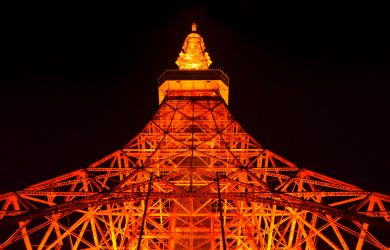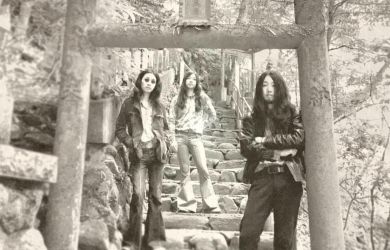
September 23, 2010
Day of the Dolphin
Activist Ric O’Barry has come a long way from his days as Flipper’s trainer
By Metropolis
Originally published on metropolis.co.jp on September 2010

Photo by Chris Betros
On September 1, Ric O’Barry would normally be in Taiji, Wakayama Prefecture, protesting against the start of the infamous dolphin hunt. But this year, the 70-year-old activist stayed away because of threats from Japanese rightwing groups.
“I’ve been going to Taiji since 1976, but it has become too dangerous for me,” says O’Barry, who works for the California-based Earth Island Institute. “Even here in Tokyo, I stay in my hotel room a lot and avoid the lobby so as not to become a target.”
His unwanted fame is the result of The Cove, this year’s Oscar-winning documentary about the dolphin hunt. “What happens in Taiji is extremely cruel, and when this level of cruelty is absolute, one should oppose it absolutely,” he says. “That’s why I continue to do it despite the threats.”
Instead of going to Taiji, O’Barry and his group visited the US Embassy and presented a petition calling for an end to the slaughter. It was signed by 1.7 million people from 155 countries, including Japan. “Most of the signatures came on the night of the Academy Awards,” O’Barry said. “As we were receiving the Oscar, I held up a sign with a number which viewers could text, and we got a million signatures.”
One of the big arguments that O’Barry has had to counter is that he’s interfering in another country’s culture and tradition. “In Taiji, there are only 13 boats, with two men each, and they have been doing the dolphin hunt since 1933. That is hardly cultural or traditional. A while ago, before The Cove came out, I stood in Ginza one day and interviewed 100 people on the sidewalk. Not one of them knew about this dolphin slaughter or the mercury contamination in dolphin meat. How can it be part of the culture if Japanese people don’t even know about it?”
O’Barry’s activism today is a world away from when he was a dolphin trainer for the hit ’60s TV show Flipper. “I had some great times with Cathy, one of the dolphins that played Flipper. I lived in a house near the dock for seven years. On Friday nights, I used to take a TV set down to the end of the dock with a long extension cord, and Flipper and I used to watch Flipper on TV.”
But the turning point came in 1970. “We didn’t have the information then that we have today, namely that there are three things killing dolphins: pollution, fishing nets and captivity. Cathy died in my arms in what I think was a suicide. Dolphins are not automatic air breathers; they die or commit suicide by not taking the next breath. I had to get out of the industry. I went from a guy who was probably the highest paid animal trainer in the world, buying a new Porsche every year, to a guy who rides a bicycle. But I have no regrets.”
O’Barry also campaigns around the world to protest keeping dolphins in captivity. “It’s a multibillion-dollar industry in America. Sea World alone last year made $1.4 billion in profit. Think about the size of the industry in Japan, which has 50 dolphin parks.” His latest project is a Discovery Channel miniseries called Blood Dolphins. Two episodes were filmed on the Solomon Islands, which had a similar dolphin hunt as Taiji. “They realized it is no longer sustainable. Earth Island Institute offered to help them find a sustainable alternative and they agreed. In April, the dolphin hunt ended.”
O’Barry has no plans to go quietly off into the sunset. “I have turned down offers for Flipper revivals. I could start my own dolphin park and make a fortune. But I wouldn’t be able to sleep at night. Instead, I want to try and go to Taiji, where I also can’t sleep at night.”
Chris Betros is the editor of Japan Today (www.japantoday.com)







